We all know this feeling: you come home from vacation, unpack your suitcase, and after a week you feel as if you were never away. Daily life completely takes over again. But sometimes something different happens. Sometimes you come home as a different person, with new insights, skills, or a completely changed perspective on life. Read on in this article about how conscious travel can transform you.
What makes travel truly life-changing?
What makes the difference between an ordinary trip and a life-changing experience? After years of traveling to destinations like India, Oman, Kenya, and walking the Camino Santiago, and guiding others on these transformative journeys, five crucial aspects have emerged that distinguish spiritual travel from mere tourism.
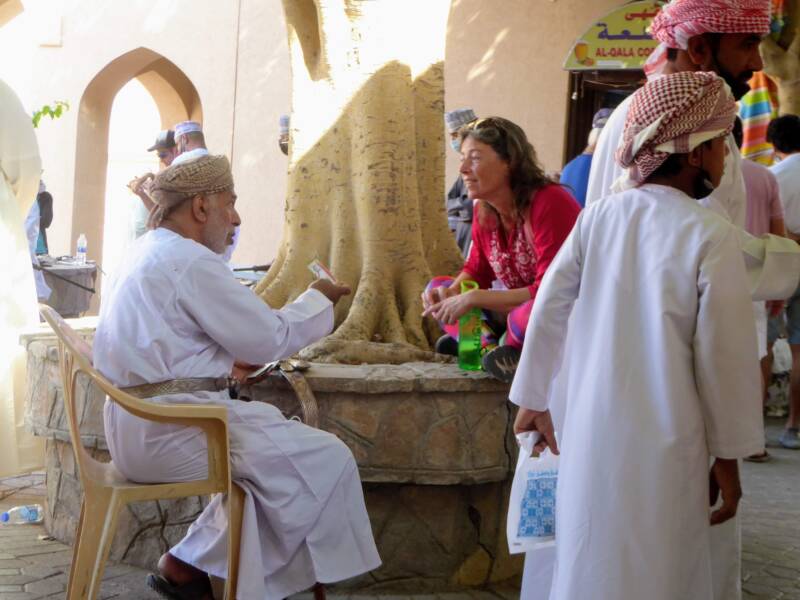
In this article, I share personal experiences and concrete examples of how conscious travel can definitively change your life. Whether you dream of a spiritual journey to India, want to walk the Camino Santiago, or are looking for authentic travel experiences: these five aspects will help make your next trip truly life-changing.
1. Consciously stepping outside your comfort zone
Why leaving your comfort zone is essential for growth
Transformative travel begins with consciously choosing a bit of discomfort and uncertainty. It goes much further than simply choosing a distant destination. Conscious travel requires seeking situations that challenge you emotionally, socially, or physically.
Practical ways to leave your comfort zone
Concrete examples for conscious travelers:
- As a social traveler, going completely alone to India or Nepal
- Choosing local transportation instead of tourist shuttles
- Staying in homestays or local accommodations with host families
- Trying new dishes during cooking classes
- Communicating in a language you barely speak
Personal experience: Backpacking through India When I first went to India alone, I had always booked trips together or organized tours. In 2015, I decided to go to India without a plan. “The first day in Delhi was overwhelming,” I remember. “The noise, the chaos, the constant stimuli. I wanted nothing more than to go straight to the hotel.”
But after three weeks traveling through Rajasthan and Kerala, I was a different person. India forces you to let go of control. Trains that are delayed, plans that don’t work out, situations you’re not prepared for. I learned to deal with uncertainty and discovered that I am much stronger than I thought.
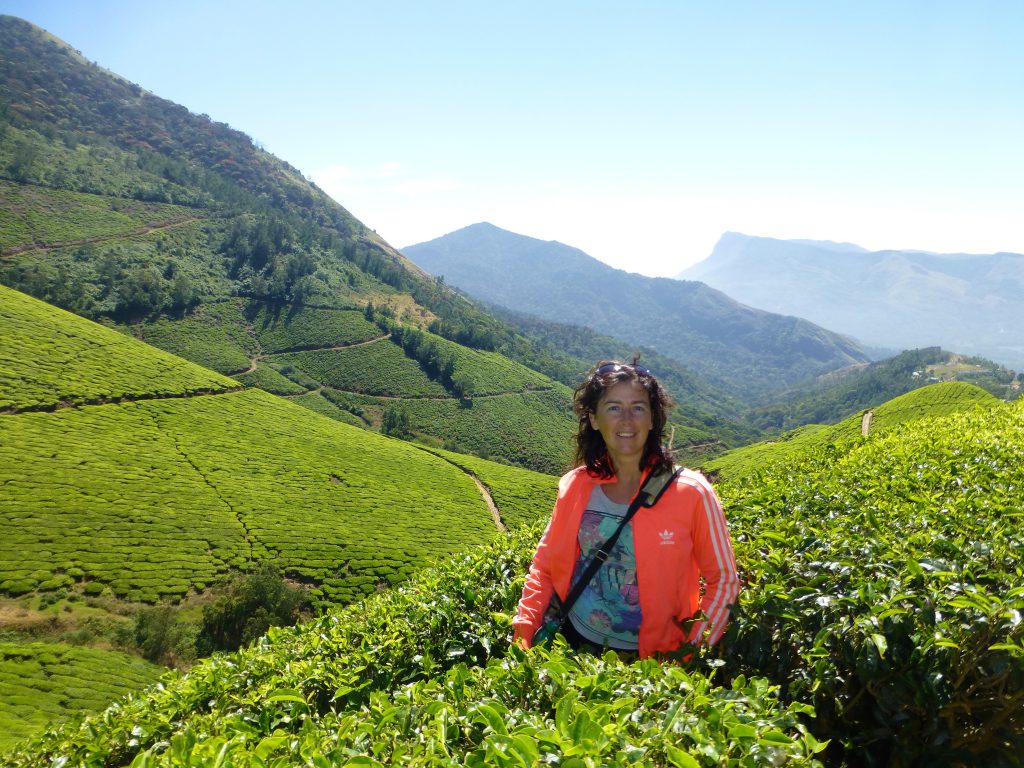
This experience was so transformative that I now guide conscious trips to India myself, where we consciously make space for unexpected encounters and personal growth.
Why this works neurologically
Neuroscientific research shows that new, challenging situations stimulate neuroplasticity. Your brain literally makes new connections when forced to think and act outside existing patterns. This is why conscious travel and pilgrimages are so powerful for personal development.
2. Learning new skills and discovering activities
From passive tourist to active participant
True life-changing travel goes beyond viewing sights. It offers opportunities to learn skills that aren’t available at home, or to discover hidden talents you never knew you had. This is what distinguishes transformative travel from ordinary vacations.
Activities that can change your life
Examples of transformative travel experiences:
- Cooking workshops with local families in India
- Learning traditional crafts: block printing in India, cooking classes in Oman
- Trying new sports: hiking in wadis in Oman, safari photography in Kenya, walking for days on the Camino
- Creative challenges: sign language in Kenya, meditation and yoga in India
- Conscious practices: meditation retreats, pilgrimages, ceremonies
Personal experience: Cooking classes in India During a stay in Rajasthan, I booked a local cooking class. “I had never prepared Indian dishes myself before,” I tell. “But something about the joint preparation of dal, chapati and curry, the patience it required, the stories shared during cooking, the family atmosphere, touched something deep in me.”
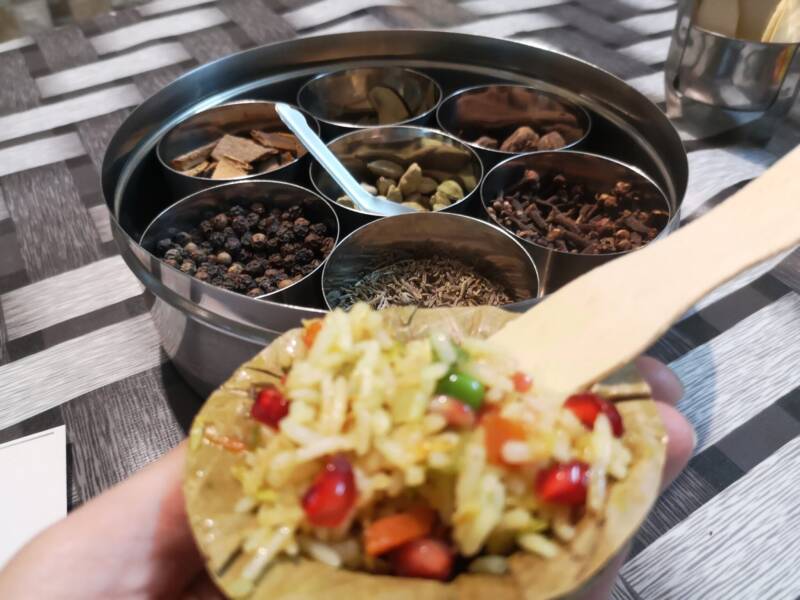
That cooking experience brought me closer to local tradition than any conversation could have done. Back in the Netherlands, I became more conscious about cooking, more varied but I also take more time for it.
The importance of local mentors during travel
The most powerful learning experiences during transformative travel often arise when you learn directly from local experts who share their knowledge with passion. This one-on-one transfer of wisdom goes far beyond technical skills; it’s about life insights and cultural understanding that you only get through conscious travel.
3. Creating genuine human connections
Beyond superficial tourist experiences
Ordinary tourist interactions often remain superficial: a smile at reception, a thank you to the guide. Transformative travel creates space for genuine human connections that permanently change your perspective. This is what makes conscious travel and group travel so powerful.
Strategies for deeper connections during travel
Practical ways to make genuine connections:
- Staying with host families via platforms like Homestay or local organizations
- Doing volunteer work in community projects during your trip
- Participating in local festivals or ceremonies
- Sharing meals with families in their own homes
- Using platforms like EatWith or Traveling Spoon
- Group travel with fellow travelers who also seek conscious growth
Personal experience: Working as a ranger in Kenya During a stay in Kenya, I got the chance to walk along with local rangers for a week. I learned so much more about nature conservation, the balance between humans and animals, and how they work there. I stayed in the national park behind iron wire with electricity in the camp for the Kenyan employees. Super interesting to be part of their lives for a week.
The daily work, patrolling against poaching, spotting wildlife, brought me closer to nature than I had ever experienced. The rangers taught me to read tracks, recognize sounds, and especially: have patience. Their passion for protecting their land was contagious.
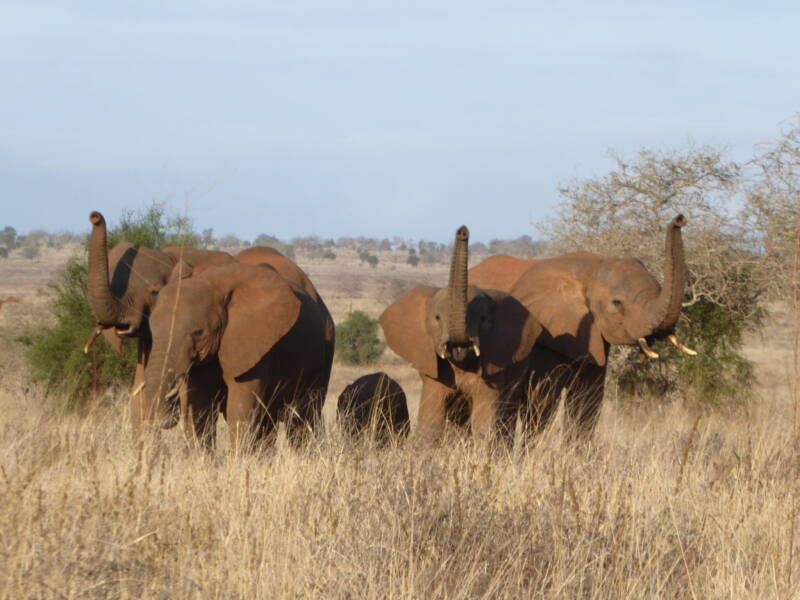
This deep connection with African nature and culture still inspires the trip to Kenya that I organize, where participants not only experience wildlife but also make real contact with local communities.
The power of breaking through language barriers
Ironically, language barriers can lead to the deepest connections during transformative travel. When words fail, people communicate on a more fundamental level: through gestures, emotions, shared activities, and presence. This makes conscious travel and pilgrimages so universally connecting.
4. Creating time for introspection and self-reflection
Space for silence in a hyper-connected world
In our hyper-connected lives, we rarely have truly quiet moments for deep self-reflection. Transformative travel consciously builds in time for introspection, moments without distraction where you can process and integrate experiences. This is why pilgrimages like the Camino Santiago are so powerful.
Effective ways to build in reflection time
Concrete techniques for conscious travelers:
- Daily journaling, preferably in the morning or evening
- Meditative activities: walking in nature, swimming, stretching
- Digital detox: putting phone on airplane mode during certain hours
- Planning solo activities between social moments during group travel
- Consciously choosing slower means of transport: trains, buses, walking
- Participating in meditation or yoga retreats
- Daily journaling with gratitude diary or 6-minute diary
Personal experience: Pilgrimage Camino Santiago I walked the Camino de Santiago in 35 days. “The first week I was constantly busy making plans by looking ahead, I was seeking some kind of certainty,” I remember. “But the Camino doesn’t allow that. You walk. You rest. And you walk again.”
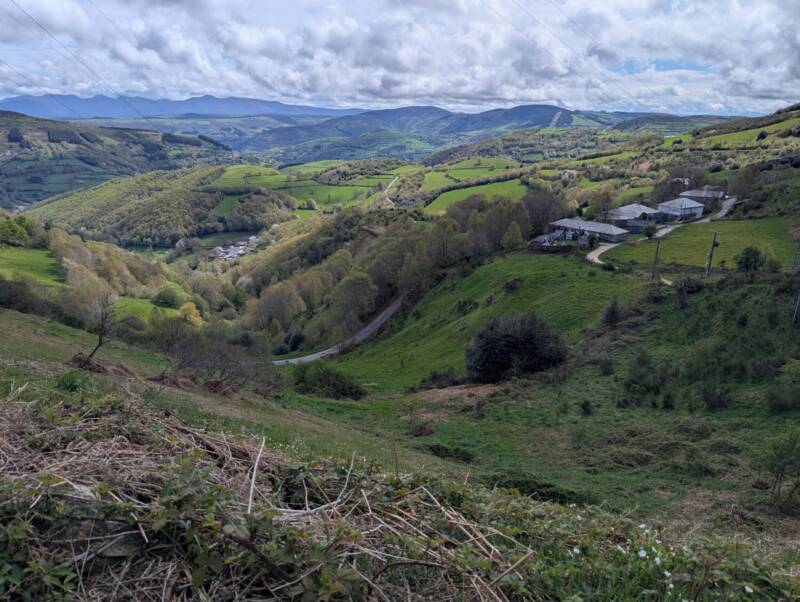
The Camino became my greatest teacher in humanity. Every day I met people from all corners of the world, a retired flight attendant from Canada, a student from Korea, a grieving father from the Netherlands. All with different stories, but one shared quest.
Slowly it dawned on me: we are all part of the same human experience. Whether you walk because of a breakup, a search for meaning, or just for adventure: we’re all in the same boat. We help each other with blisters, share our water when needed, listen to each other’s stories. We discover that despite all differences, our deepest desires are universal: connection, peace, meaning.
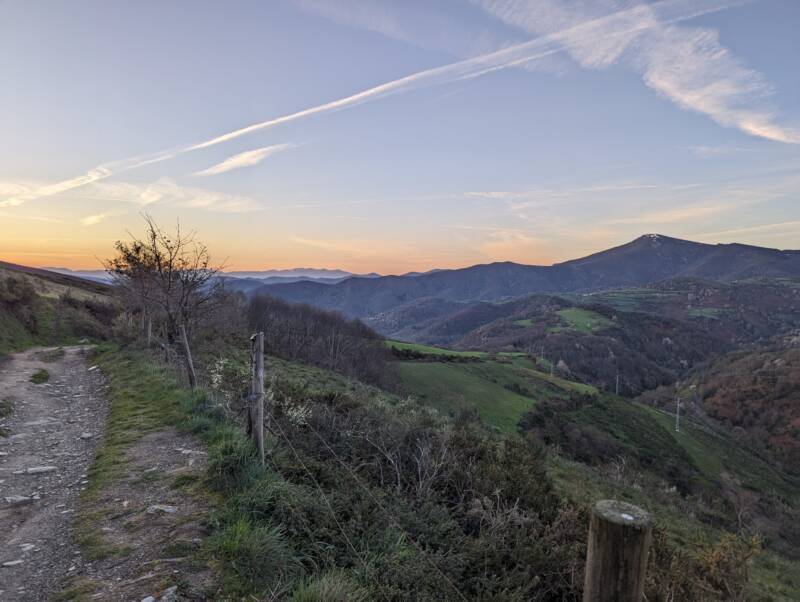
The power of this pilgrimage was so overwhelming that I now organize a pilgrimage on the Camino, where participants get space for introspection and personal breakthroughs.
The science behind reflection during travel
Neurological research shows that moments of rest and reflection are essential for consolidating memories and forming new insights. This process, known as the “default mode network,” is activated when we are not actively focused on specific tasks. This is why conscious travel and pilgrimages are so effective for personal transformation.
Read more about the Default Mode Network
5. Confrontation with other values and lifestyles
Questioning your own assumptions
Perhaps the most powerful aspect of transformative travel is confrontation with fundamentally different ways of living. This experience forces you to critically examine your own values, habits, and assumptions. Conscious travel to India, cultural immersion in Oman, or nature connections in Kenya all show that there are many paths to happiness and meaning.
Examples of value-challenging travel experiences
Transformative cultural immersion:
- Living in communities where time is experienced differently (as in many African or Arabic cultures)
- Staying in places where material possessions are less important
- Experiencing how other cultures deal with aging, family, spirituality
- Seeing how different societies deal with happiness and success
- Participating in traditional ceremonies and rituals during group travel
Eating at a local’s home in Oman
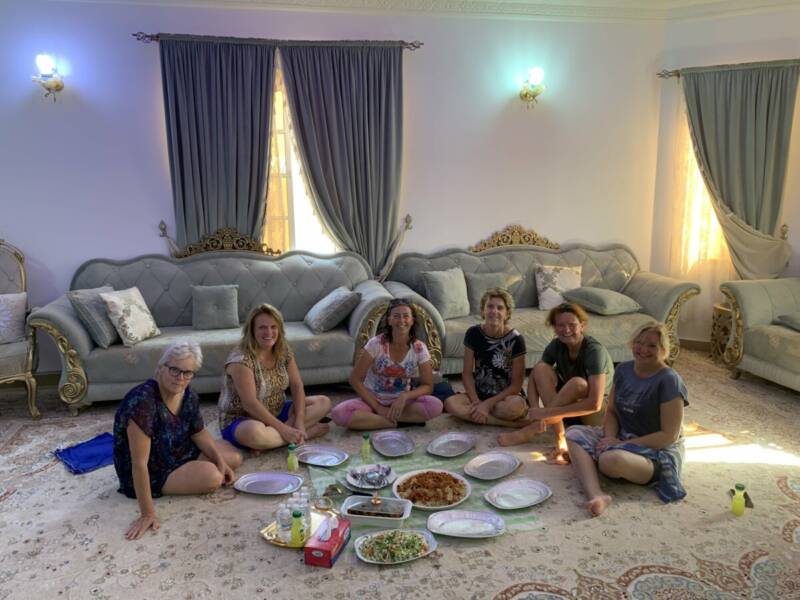
Personal experience: Hospitable culture in Oman During my trip through Oman, I experienced the legendary Arabic hospitality. “I come from a world where everything is rushed and efficiency is everything,” I told. In Oman, I learned that conversations may take time, and that real connection is more important than a full agenda.
In the Wahiba Sands, I was with a Bedouin family. They shared their food, their stories, their time, without expecting anything in return. I realized how individualistic and rushed my life had become. This experience has changed my priorities. My life is slower, but much richer.
The lessons in hospitality and slowing down that I learned in Oman formed the basis for the cultural trips to Oman that I now organize, where we consciously don’t plan everything full and keep time for spontaneous encounters.
Additional experience: Awareness and reflection in India During my conscious travels through India, I experienced the deep-rooted contemplation that is part of daily life. From morning pujas at the Ganges in Varanasi to yoga in an ashram in Pushkar, everywhere I saw how people made space for reflection and inner growth. It taught me that success can also mean: inner peace, time for contemplation, and connection with something greater than yourself.
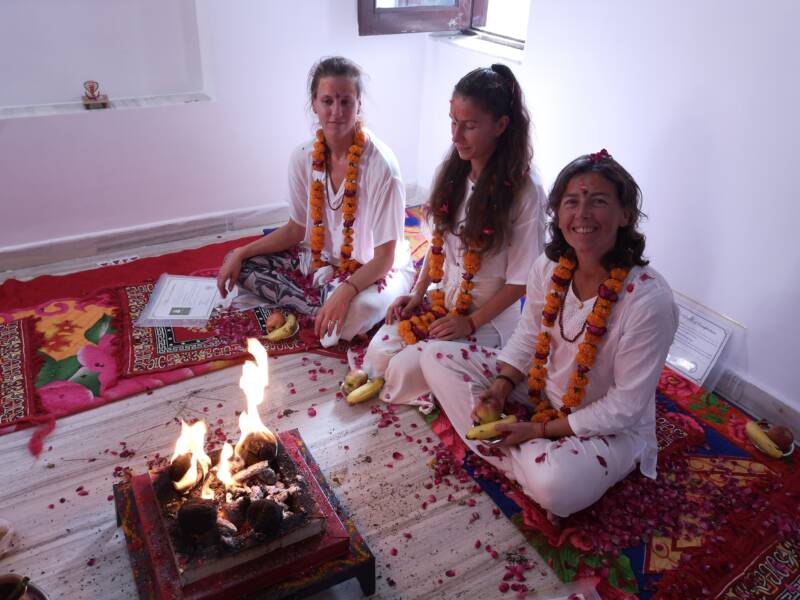
Relativization through perspective during transformative travel
Seeing other lifestyles during conscious travel works like a mirror. It not only shows you how others live but also makes you aware of which choices you make (consciously or unconsciously) in your own life. This is why life-changing travel is so powerful for your personal development.
The coherence: Discomfort as catalyst for growth
All five aspects of transformative travel have one thing in common: they require you to temporarily distance yourself from comfort and control. This discomfort is not the goal of conscious travel, but it is the catalyst for growth.
Why discomfort during travel transforms:
- It breaks automatic patterns and routines
- It activates problem-solving ability and creativity
- It builds mental resilience that you can use at home
- It teaches you to trust your own capabilities
- It makes space for new experiences and insights
- It creates stories and memories that permanently change your life
Practical guide for your transformative journey
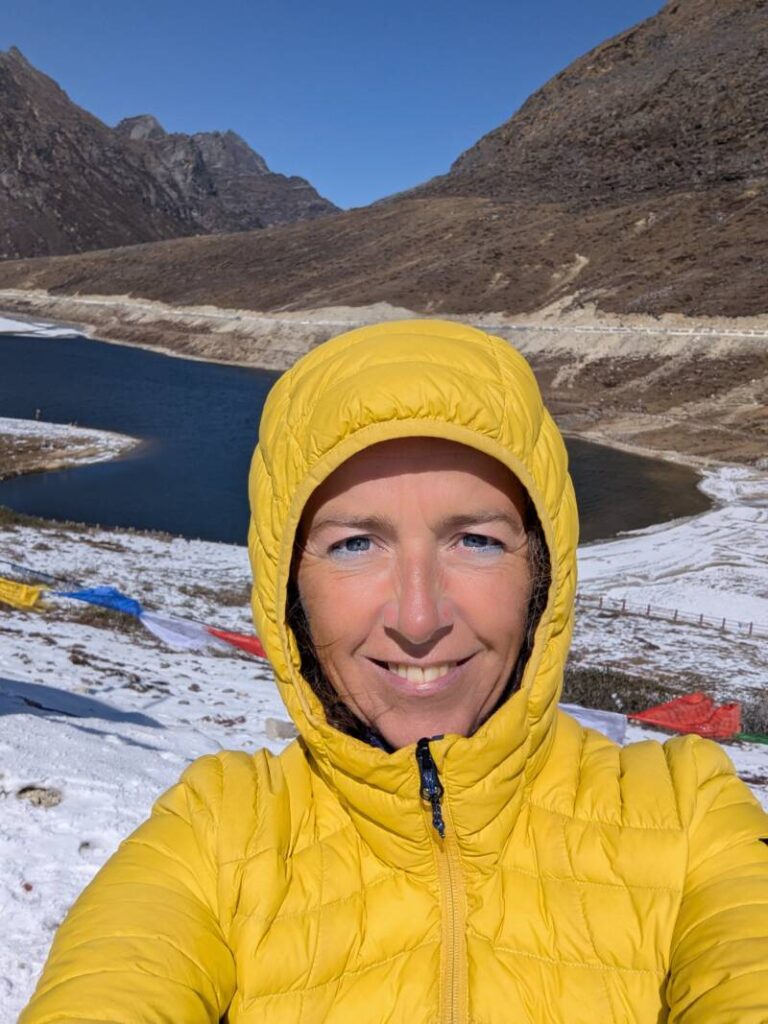
It’s cold but beautiful in the Himalaya – Arunachal Pradesh, India
Preparation for transformative travel
Essential steps for conscious travelers:
- Set a clear intention: What do you want to learn or experience during your trip?
- Consciously choose challenge: Identify what you’re a bit afraid of and go there
- Consciously plan less: Leave room for spontaneity and unexpected opportunities
- Prepare for discomfort: Accept that not everything will go smoothly
- Research local cultures: Learn about customs and traditions of your destination
Destination-specific tips for transformative travel
Conscious travel to India: Don’t book continuous accommodation—leave room for spontaneous decisions. Try local trains, visit ashrams, and participate in festivals. India is perfect for those seeking awareness and self-insight. On our India trip, we combine conscious experiences with authentic local encounters.
Cultural travel to Oman: Stay at least one night in the desert with a local family. Learn about the stars, traditional navigation, and the art of storytelling. Oman offers unique opportunities for cultural immersion. Our Oman trip offer unique access to authentic Bedouin experiences.
Pilgrimage Camino Santiago: Walk at least 100 kilometers on foot. Stay in albergues (hostels) to meet other pilgrims. Leave your phone behind during walks. The Camino is ideal for introspection and personal breakthroughs. Our guided Camino trips offer the perfect balance between group support and personal space and let you pilgrimage 200 km.
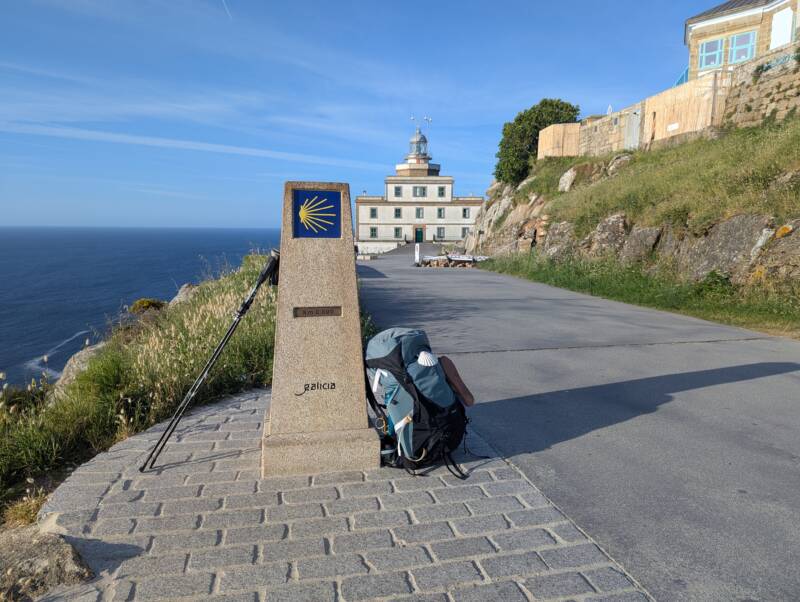
Nature travel to Kenya: Combine wildlife with culture, stay with local communities, not just in safari lodges. Learn about traditional medicine and sustainable agriculture. Kenya offers powerful experiences in nature connection. On our Kenya trip, you help the (deaf) community and promote sustainable travel within Kenya.
During your transformative journey
Practical tips for transformative experiences:
- Say ‘yes’ more often: To invitations, new experiences, spontaneous plans
- Seek local mentors: People who can teach you something during your trip
- Document your growth: Not just photos, but also thoughts and insights
- Embrace the unknown: Get lost literally and figuratively
- Connect with fellow travelers: Share experiences with others who also travel consciously
After your transformative journey: Integration at home
Essential steps for lasting change:
- Integrate gradually: Slowly bring new insights into your daily life
- Share your story: Tell others about your transformation
- Maintain new habits: Which changes do you want to make permanent?
- Plan your next growth: Transformation is an ongoing process
- Stay connected: Maintain contacts with people you met during your trip
Why small-scale group travel is more transformative
The power of conscious travel companions
While solo travel can be enormously powerful, small-scale group travel offers unique advantages for transformation. The combination of personal growth and shared experiences also strengthens the learning process. Fellow travelers become mirror, support system, and source of inspiration all at once.
Advantages of transformative group travel:
- Shared growth: Sharing experiences deepens the impact
- Safe challenge: Step outside your comfort zone with support
- Diverse perspectives: Learn from others’ insights
- Guided reflection: Professional guidance helps with processing
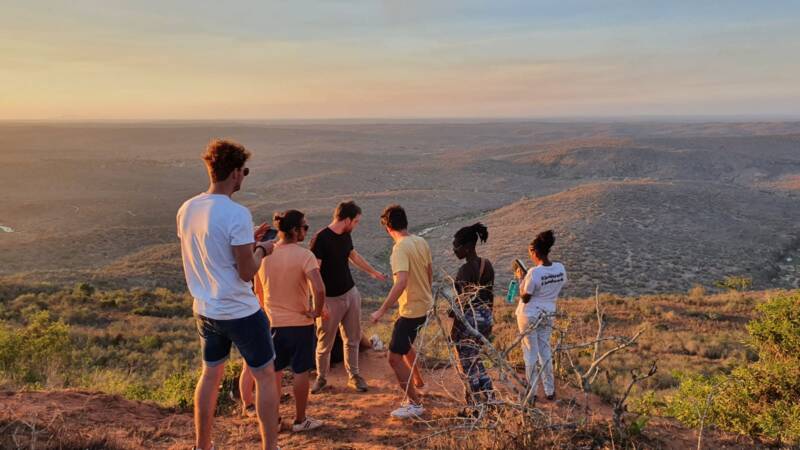
A life full of conscious travel
Conscious travel is not reserved for sabbaticals or major life moments. It can also take place during weekend trips to neighboring countries, or even in your own city by exploring with a different mindset.
It’s not about the distance you travel or the money you spend. It’s about the willingness to be open to change, to leave your comfort zone, and to let yourself be touched by new experiences and people. Conscious travel, pilgrimages, group travel with conscious intention. They can all be transformative if you have the right mindset.
In a world where we live increasingly rushed lives and increasingly distant from ourselves and others, transformative travel offers a chance to reconnect: with others, with the world, and especially with ourselves.
The question is not whether you can travel. The question is: are you willing to let yourself be transformed by the journey?
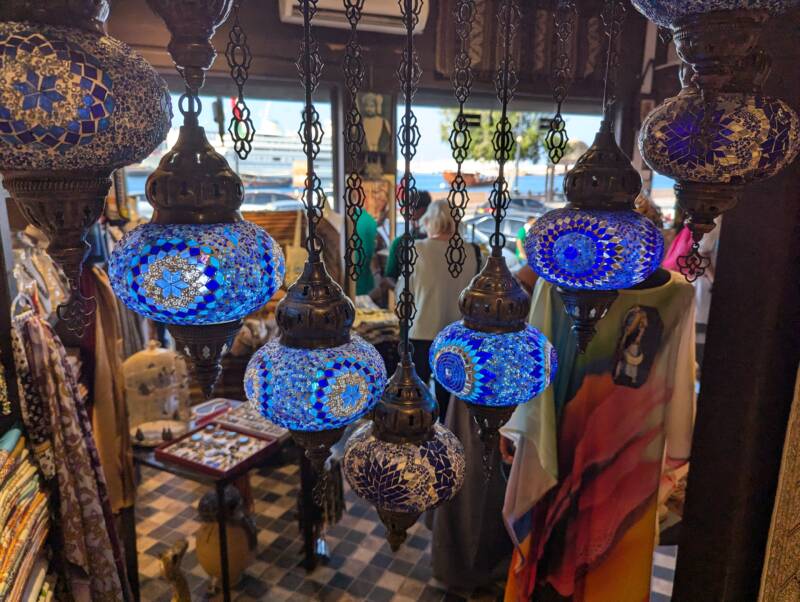
Ready for your own conscious journey?
After years of experiencing how powerful conscious travel can be, I now organize transformative trips to the destinations that have touched me most. Each trip is designed around the five aspects we discussed in this article:
🇮🇳 Conscious trip to India From the chaos of Delhi to the serenity of ashrams in Pushkar. Experience the real India through cooking classes with local families, meditation at the holy lake in Pushkar, and stays at local small-scale accommodations in Rajasthan. These conscious trips combine personal growth with authentic cultural immersion.
🇴🇲 Cultural trip to Oman Discover the art of true hospitality in the hidden pearl of the Middle East. Stay with Bedouins in the desert, learn traditional crafts, and experience a culture where time and connection are central. These transformative trips offer unique access to authentic Arabic traditions.
🇰🇪 Impact trip to Kenya Go beyond safari tourism. Stay with local communities and experience the deep connection between humans and nature that makes Africa so unique. During these conscious trips, wildlife experiences are combined with real cultural exchange. Travel from the coast where you snorkel to the interior where we spot the big 5.
🚶♀️ Guided pilgrimage on the Camino Santiago Walk your own pilgrimage with guidance that gives space for introspection. Experience the power of simplicity, connection with fellow pilgrims, and the transformation that comes from moving forward step by step. These pilgrimages are designed for deep personal reflection.
Why choose guided transformative travel?
Each trip is consciously small-scale (maximum 4-15 participants) and is guided from years of experience with these destinations. We ensure the perfect balance between challenge and support, adventure and safety, individual growth and group connection.
What makes our transformative trips unique:
- Personal guidance: Experienced guide who has experienced transformation themselves
- Small-scale groups: Intimacy and personal attention guaranteed
- Local partners: Authentic experiences through direct contacts
- Conscious planning: Every day designed for maximum transformation
Want to know more about transformative travel? Check the complete travel calendar or contact us for a personal conversation about which conscious trip best fits your growth wishes.
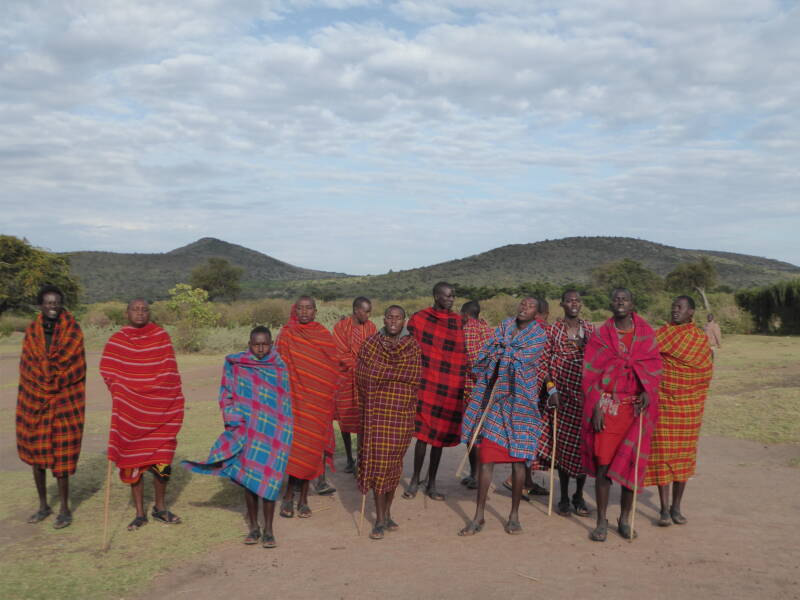
Frequently asked questions about conscious travel
Are conscious trips suitable for beginners? Absolutely! Our transformative trips are designed for people of all experience levels. Whether you already have experience with conscious travel or this is your first conscious trip, we adapt the guidance to the group.
What if I’m not religious? Conscious travel is not about religion, but about personal growth and awareness. Many of our participants are not religious but are looking for meaning and transformation.
How small are the groups? We consciously travel with small groups of 4-15 participants. This ensures intimacy, personal attention, and deeper connections between fellow travelers.
Can I join group trips alone? Certainly! Many of our participants travel solo to our group trips. This is actually a nice way to meet new people who are also interested in conscious travel.
Have you had a transformative travel experience, or do you want to know more about the conscious trips we organize? Contact us via zinvolreizen@gmail.com or check our complete travel calendar. Your story can inspire others to their own transformation adventure.